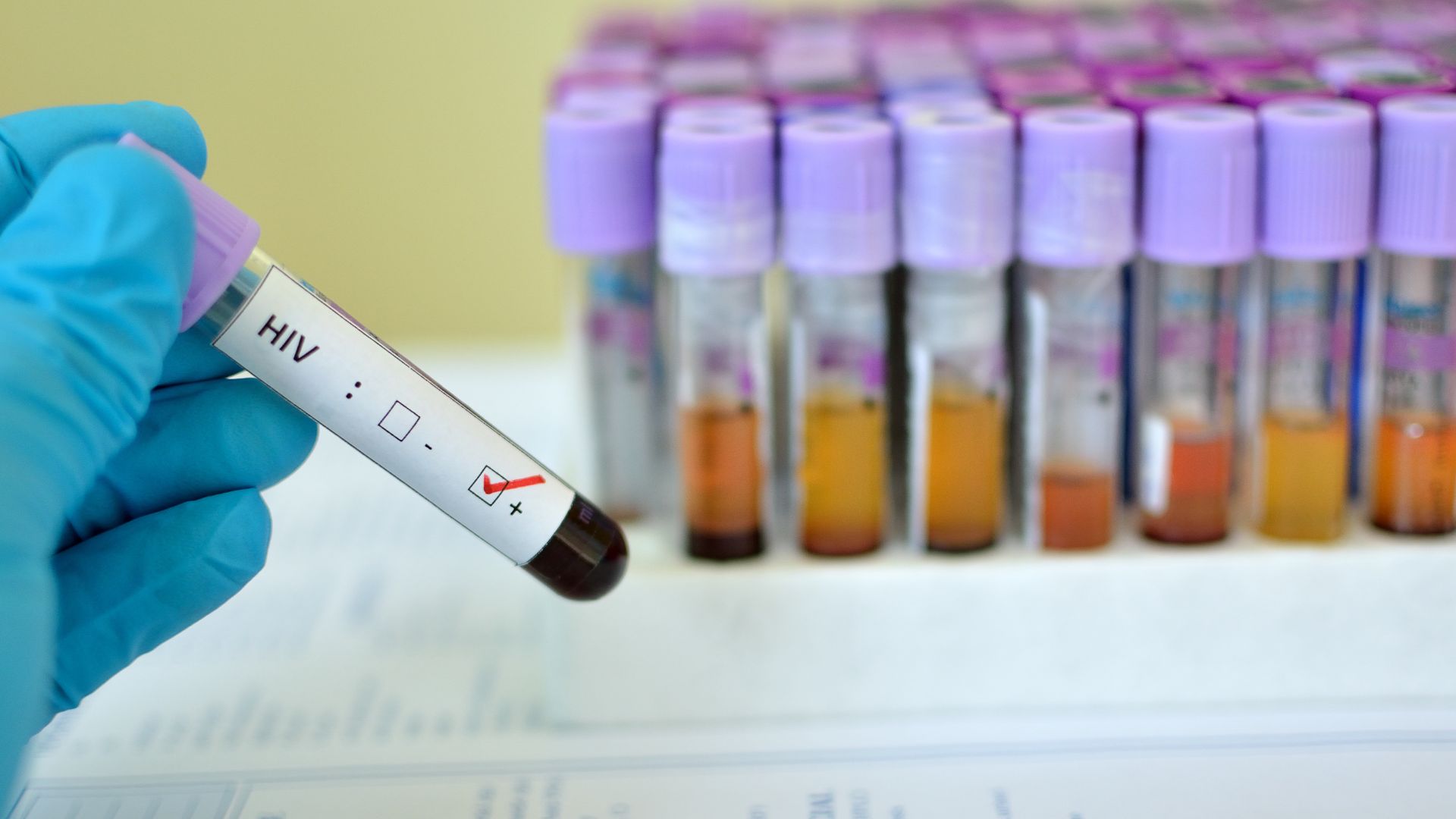
Key Information
| Topic | Details |
|---|---|
| Impact on Fertility | HIV affects fertility in both genders, can be managed with ART |
| Sperm Washing | Reduces HIV transmission risk, maintain sperm quality |
| ICSI | Ensures better fertilization rates, used with sperm washing |
| PrEP | Additional prevention measure for HIV-negative partners |
| Safety Protocols | Clinics use dedicated equipment and follow strict guidelines to minimize transmission risks |
| Financial Support | Various schemes and programs available to help manage costs of IVF treatments. |
| Emotional Support | Counseling and support groups play a crucial role in the IVF journey for HIV-positive couples. |
| Finding the Right Clinic | Essential to choose facilities experienced in handling HIV-positive cases. |
| Success Stories | Proves that safe and successful IVF is possible for HIV-positive individuals. |
In the journey towards parenthood, couples affected by HIV face unique challenges, particularly in the realm of conception where the risk of transmission to the uninfected partner and future child must be carefully managed.
With the significant advances in reproductive technologies and stringent safety protocols, In Vitro Fertilization (IVF) has become a viable and safe option for HIV-positive individuals wishing to build their families.
This thorough guide aims to demystify the IVF process for those living with HIV, focusing on specialized protocols, understanding fertility impacts, and emphasizing the indispensable role of comprehensive medical support.
Understanding HIV and Fertility
How HIV Impacts Fertility in Men and Women
Living with HIV presents certain biological challenges that can influence fertility.
For women, the virus can lead to disruptions in regular ovulation cycles, trigger hormonal imbalances, and potentially escalate the risk of pelvic inflammatory disease (PID), all factors that can complicate natural conception efforts.
Men are not spared; HIV can diminish sperm count, impair motility, and degrade sperm quality, directly impacting the fertilization process.
Understanding these impacts is crucial in planning an effective approach to conception using IVF.
Moreover, individuals with other fertility challenges, such as those facing complications related to PCOS, unexplained infertility, advanced maternal age, or conditions like endometriosis, may find additional hurdles on their path to parenthood, which necessitates an even more tailored IVF approach.
The Crucial Role of Antiretroviral Therapy (ART)
ART plays a transformative role for individuals living with HIV. By adhering to their prescribed ART regimen, individuals can suppress their viral load to undetectable levels, meaning the virus is still present but at levels so low it can’t be detected by standard tests.
This suppression is not only crucial for the health of the HIV-positive individual but is pivotal in reducing the risk of transmitting the virus to both the uninfected partner during the conception process and the baby during pregnancy and delivery.
An undetectable viral load enhances fertility potential and aligns with one of the fundamental principles in HIV care – undetectable means untransmittable (U=U).
It is absolutely vital for patients to stay diligent with their ART regimen throughout the fertility treatment process to maintain this safe state.
Important Considerations for Disclosing HIV Status
Full transparency about one’s HIV status is essential when consulting with fertility specialists.
This disclosure allows for personalized treatment planning that prioritizes safety at every juncture, protecting both the uninfected partner and future child.
Additionally, clinics equipped to handle cases of individuals with specific fertility challenges, such as male infertility or low ovarian reserve, can provide more specialized care.
Choosing the Right IVF Clinic
Picking a fertility clinic that is skilled in managing IVF treatments for HIV-positive patients is another critical factor.
Patients should look for clinics that not only have a history of dealing with similar cases but also those that offer robust psychological support options, like links to IVF support groups across India, counseling for coping with IVF failures, and helping manage the psychological effects of IVF.
Information about clinics practicing in various locations like Bhiwandi, Saharanpur, Gorakhpur, Guntur, and Bikaner can be found online, providing patients with options that might suit their geographical and individual needs.
Specialized IVF Protocols for HIV-Positive Individuals: Minimizing Transmission Risks
Navigating the conception journey safely requires incorporating specialized IVF protocols designed specifically for minimizing the risk of HIV transmission.
Advances in reproductive technology have paved the way for methods like sperm washing, Intracytoplasmic Sperm Injection (ICSI), and the use of Pre-exposure Prophylaxis (PrEP), providing HIV-positive individuals with a robust set of tools to achieve their dream of parenthood without compromising safety.
Sperm Washing: A Safe and Effective Technique
Sperm washing is a critical procedure tailored for HIV-positive males. This technique involves separating sperm cells from the seminal fluid, which is where the HIV virus resides.
The isolated sperm are then used in the IVF process, significantly reducing the risk of transmitting the virus to both the female partner and the future child.
- Procedure: The semen sample is centrifuged, and the sperm cells are extracted from the seminal plasma. These washed sperm are then tested for HIV RNA to ensure that no viral particles are present before being used for fertilization.
- Success Rates: Research and clinical trials have shown that sperm washing, when combined with effective ART and rigorous testing, can effectively eliminate HIV from the semen used in IVF, with success rates nearing 100%.
- Safety Concerns: Patients often worry about the potential impact of sperm washing on sperm health. Current evidence suggests that when performed by skilled professionals in specialized clinics, sperm washing has minimal detrimental effects on sperm quality.
ICSI (Intracytoplasmic Sperm Injection): Enhanced Fertilization
For many HIV-positive couples, especially those dealing with additional male fertility issues, Intracytoplasmic Sperm Injection (ICSI) offers a beneficial complement to sperm washing.
This technique involves directly injecting a single sperm into an egg, which can be crucial in cases of low sperm count or poor motility, common in HIV-positive males.
- Process: A carefully selected sperm is injected directly into the egg using a fine needle, which can improve the chances of successful fertilization by bypassing the natural barriers that may impede the sperm from penetrating the egg.
- Link to ICSI: More detailed information on how ICSI can assist in cases of HIV can be accessed through resources on Intracytoplasmic Sperm Injection.
PrEP: An Additional Layer of Protection for HIV-Negative Partners
Pre-exposure Prophylaxis (PrEP) has revolutionized the prevention of HIV in negative partners within serodiscordant couples.
When one partner is HIV-positive and the other is negative, PrEP provides an additional safety layer during the natural conception attempts that may occur alongside IVF procedures.
- Functionality: PrEP involves the HIV-negative partner taking antiretroviral medications daily as a preventive measure against HIV infection.
- Eligibility: Healthcare providers will typically evaluate the uninfected partner for any health conditions that might influence the effectiveness or advisability of PrEP and discuss potential side effects.
These specialized IVF protocols enhance the safety of the conception process, significantly reducing the risk of HIV transmission and offering couples reassurance as they proceed with their fertility treatments.
Managing Transmission Risk During IVF: Rigorous Protocols for Safety
Ensuring the highest standards of safety during IVF treatment is paramount, especially for couples where one or both partners are HIV-positive.
Fertility clinics specializing in treating HIV-positive patients adopt stringent safety protocols to minimize the risk of transmission during the IVF process.
Dedicated Equipment and Workspaces
To prevent any risk of cross-contamination, IVF clinics often use dedicated equipment and designated workspaces when handling gametes and embryos from HIV-positive patients.
This specialization extends to the use of separate incubators and carefully controlled environments to ensure that all procedures are conducted under the safest conditions possible.
- Universal Precautions: All medical staff in these clinics are trained in universal precautions, which is a health care approach where all human blood and certain human body fluids are treated as if known to be infectious for HIV, HBV, and other bloodborne pathogens.
Regular Testing and Monitoring
Regular monitoring and testing form a crucial part of the safety protocols in IVF treatments for HIV-positive couples.
This includes rigorous testing of the gametes and the environment, as well as regular health checks for the patients to monitor their viral load and overall health.
- Embryo Testing: Embryos are screened for genetic and chromosomal normality, which includes ensuring they are free from HIV. Advanced genetic screening techniques are employed for this purpose, offering reassurance to prospective parents.
Effective Communication: Empowering Patients with Information
Open and transparent communication between the healthcare team and the patients is vital. Patients must be fully informed about every aspect of the IVF process, the inherent risks, and the measures taken to mitigate them.
- Counseling and Support: Clinics should provide comprehensive counseling services to help patients understand the risks and realities of IVF with HIV. Support can also come from various IVF support groups specifically designed for HIV-positive individuals.
This careful management of transmission risks ensures that IVF can be a safe option for HIV-positive individuals, allowing them to pursue their dreams of parenthood without undue stress about the safety of the procedures involved.
Additional Considerations for HIV-Positive Couples Pursuing IVF
Embarking on an IVF journey is a significant decision that involves multiple aspects beyond medical procedures.
For HIV-positive couples, understanding the financial, emotional, and practical considerations is crucial to achieving a successful outcome.
Financial Considerations and Potential Support
The cost of IVF can vary widely depending on the specific treatments required, the clinic’s location, and additional procedures such as sperm washing or genetic screening.
In India, the cost for one IVF cycle can range between ₹3 lakhs to ₹8 lakhs or more. It is important for couples to:
- Explore Financial Assistance: Several programs and schemes are available which can assist with the costs of IVF. For instance, the Laadli Scheme from the Indian government provides financial aid to eligible couples. Additionally, many states offer their own health schemes that may cover parts of the treatment.
Emotional and Psychological Support
The IVF journey, particularly for HIV-positive couples, can be emotionally challenging. Proper psychological support is not only beneficial but necessary:
- Therapeutic Support: Consulting with a therapist who specializes in fertility issues can help couples manage the emotional ups and downs of IVF treatments. Many clinics offer counseling services, and it’s wise to take advantage of these.
- Support Groups: There are numerous support groups across India that offer a platform for sharing experiences and receiving support from other couples undergoing similar journeys.
Choosing the Right Clinic
Selecting the right IVF clinic is one of the most critical decisions for ensuring a good treatment experience and outcome. Couples should consider:
- Specialization and Experience: Look for clinics known for handling HIV-positive cases and ask about their specific protocols for managing HIV during IVF.
- Success Rates and Transparency: Evaluate the clinic’s success rates and how openly they communicate these statistics and their treatment protocols to prospective patients.
The Importance of Informed Decision-Making
Fully understand all aspects of the IVF process, the associated risks, and the success rates. Knowledge is empowering and pivotal in making informed decisions about pursuing IVF.
It’s also vital to establish open communication with the IVF clinic’s team from the outset to align expectations and plan the treatment path comprehensively.
Success Stories and Finding Hope: Building Your Family Through IVF
The journey through IVF, particularly for couples dealing with HIV, is punctuated with challenges, but also ripe with potential for joy and success.
Here, we share some uplifting success stories and additional resources that not only provide hope but underscore the viability of achieving parenthood through IVF.
The Power of Perseverance: Real-Life Examples
Celebrating the stories of those who have navigated this path can offer immense motivation and reassurance:
- Example 1: Consider the story of a couple from Mumbai who, despite the challenges posed by HIV, successfully conceived a healthy baby boy through IVF, incorporating protocols like sperm washing and ICSI.
Their journey, marked by determination and meticulous planning with their IVF specialists, highlights the possibilities that modern reproductive technologies can offer. - Example 2: Another story involves a couple from Delhi where the HIV-positive partner was the mother. The use of ART to maintain an undetectable viral load, combined with careful IVF planning, resulted in the birth of healthy twins, demonstrating that effective treatment and careful monitoring can lead to successful outcomes.
These stories not only provide encouragement but also help in normalizing the conversation about HIV and fertility treatment, promoting a more inclusive understanding of family-building options.
Finding Reputable Resources and Support Organizations
Navigating IVF requires robust support—not just from medical teams and family but also from the larger community and specialized organizations:
- The Gates Institute: Engage with resources offered by global health organizations that focus on improving reproductive health outcomes for all, including those affected by HIV.
- National AIDS Control Organisation (NACO), India: They provide a comprehensive list of resources and support for HIV-positive individuals, improving accessibility to specialized healthcare services across the country.
Taking the Next Step
- Consult a qualified specialist: Armed with success stories and a supportive network, the next step is to consult with fertility specialists who are versed in managing IVF for HIV-positive individuals.
- Gather all pertinent medical history and current health information: Being well-prepared for initial consultations can help streamline the process and tailor the approach to suit individual cases.
- Maintain a hopeful outlook: Advances in medical science have transformed the possibilities for HIV-positive couples aspiring to become parents.
Conclusion: Empowering HIV-Positive Individuals to Build Families Through IVF
The advancements in reproductive technology and IVF protocols have revolutionized the possibilities for HIV-positive individuals desiring to start families.
By maintaining rigorous adherence to ART, utilizing specialized IVF techniques like sperm washing and ICSI, and engaging in preventative measures such as PrEP, couples can safely and successfully realize their dreams of parenthood.
Our exploration of IVF for HIV-positive patients underscores the importance of meticulous planning, informed decision-making, and choosing a supportive and experienced clinic.
Remember, you are not alone in this journey. With the right information, continued advances in medical research, and the support of dedicated healthcare professionals, becoming a parent is an achievable dream for HIV-positive individuals.
Whether you are just starting to consider IVF or are looking for more specific guidance, resources like AIDS.gov and the National AIDS Helpline are valuable for information and support.
Take this step with confidence, supported by the knowledge that medical science and compassionate care are on your side.
Frequently Asked Questions (FAQs)
Is IVF safe for HIV-positive individuals?
Yes, with specialized protocols like sperm washing and stringent safety measures, IVF is safe for HIV-positive individuals.
Can HIV be transmitted to the child through IVF?
The risk is extremely low when appropriate measures like sperm washing and ART are strictly followed.
What are the costs involved in IVF for an HIV-positive couple?
Costs can vary but expect a range from ₹3 lakhs to ₹8 lakhs per cycle. Financial aid may be available.
How can I find a reputable IVF clinic for HIV-positive couples?
Look for clinics with specific experience in handling HIV-positive cases and check their success rates and safety protocols.
Is psychological support available during the IVF process?
Yes, many clinics offer counseling, and there are support groups for HIV-positive couples undergoing fertility treatments.






